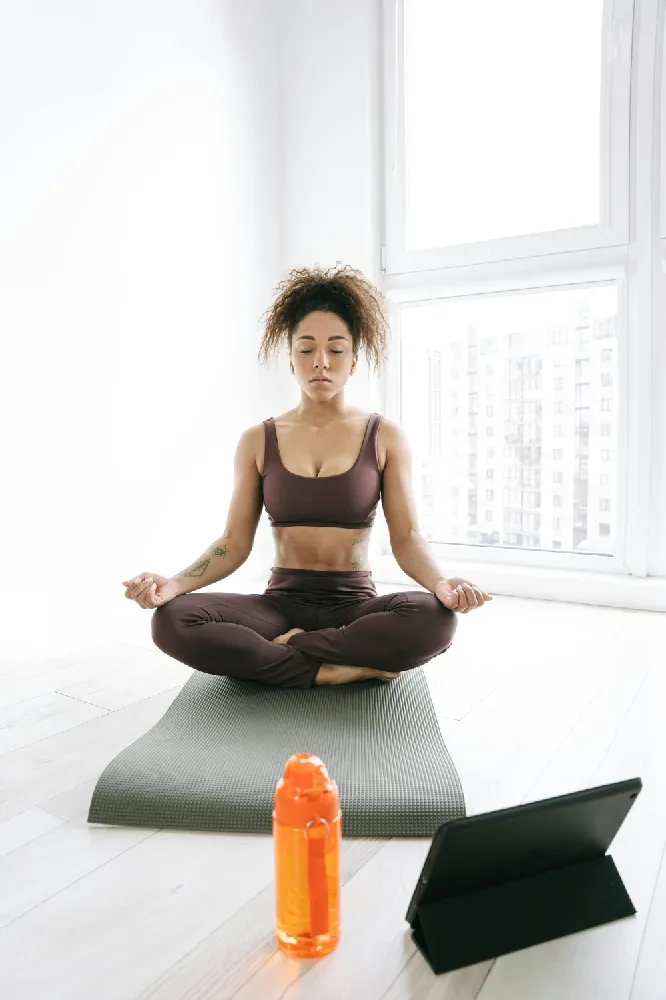
Feeling stuck trying to figure out where your home gym should go?
Maybe your garage is packed with stuff, the basement gives off horror movie vibes, or your spare room doubles as a storage closet. Yeah, I’ve been there.
Here’s the thing—there’s no one-size-fits-all answer. But after a lot of trial, error, and some serious reorganizing, I’ve learned a few solid tips that can help you figure out what’ll actually work in real life.
Let’s Start With Some Real Questions
- Do you want to lift heavy, or just get your cardio in?
- Is temperature control a deal-breaker for you?
- Do you need peace and quiet—or a space that’s easy to get pumped up in?
- How much room do you actuallyneed for your gear?
When I was setting up my home gym, these were the first questions I had to answer. Once you know what kind of workouts you're doing and how much space you really need, picking a spot becomes a lot easier.
Option 1: Garage Gym Setup
I’ll be honest—this is the route I went first. It was messy, cold in winter, and hot in summer. But it had space.
Pros:
- Big enough for barbells, power racks, and conditioning circuits
- Concrete floors = no stress about dropping weights
- You can blast music, no one cares
Cons:
- Temperature swings—unless you’ve got insulation or a portable heater/AC
- Dust, bugs, and the occasional spider lifting with you
- You might have to park your car elsewhere
Tips:
- Use rubber mats or horse stall mats for solid home gym flooring
- Install wall-mounted storage for weights, resistance bands, or kettlebells
- Hang a fan or small AC unit if summers get brutal
Option 2: Basement Gym
Basements are kind of a hidden gem. If you’ve got one that’s dry and not creepy, it might be your best bet.
Pros:
- Cool and quiet—great for long, focused workouts
- No need to worry about noise bothering anyone
- Feels like a dedicated workout space
Cons:
- Low ceilings can be a pain for overhead presses or pull-ups
- Might need better lighting or flooring
- If it’s unfinished, it could feel gloomy unless you really decorate it
Tips:
- Use bright, daylight-style LEDs to light the place up
- Install mirrors—it makes the space feel bigger and helps with form
- Consider a dehumidifier to keep moisture in check
Option 3: Spare Room or Office Conversion
When I moved, the guest room became my gym—sorry guests. And you know what? It worked surprisingly well.
Pros:
- Already finished, with lights, outlets, and maybe even a mirror
- Feels cozy and personal—perfect for yoga, Pilates, or light strength work
- Less temperature fluctuation
Cons:
- Limited floor space if it’s a small bedroom
- Need to get creative with storage
- Furniture might need to go or get moved around often
Tips:
- Use a foldable bench and adjustable dumbbells to save space
- Install resistance bands and TRX on a wall mount
- Consider a 12x12 home gym layout if space is tight
Other Ideas If You’re Working With Limited Space
Not everyone has an extra room or a garage, and that’s totally fine.
- A corner in your living room with a mat and a few key items still counts as a gym
- Use vertical space—wall shelves, hooks, even behind-the-door organizers work wonders
- Foldable equipment like rowing machines or under-desk treadmills can slide away when you’re done
Plenty of folks on Reddit home gym ideas threads have transformed tiny nooks into solid workout zones.
Don’t let space stop you.
Final Tips to Make Any Space Work
- Natural Light: If you can, choose a spot with windows. It makes a huge difference in how motivated you feel.
- Ventilation: Especially important for garages or basements—no one wants stale, sweaty air.
- Strong Wi-Fi: Online classes, YouTube workouts, and fitness apps rely on it.
- Consistency: Choose a spot that’s easy to access so there are fewer excuses to skip a workout.
- Personal Vibe: Make it your own. Add a speaker, a motivational poster, whatever gets you going.
So...Where’s the Best Place for a Home Gym?
Short answer: it depends on what you’ll actually use.
Whether it’s a 20x20 home gym layout with all the bells and whistles or just a yoga mat in your bedroom, what matters most is that it fits your lifestyle.
I’ve worked out in garages, basements, guest rooms, and even hotel rooms. The best space is the one that removes friction and gets you moving.
Pick a space you enjoy being in, start small, and build it out as you go.
Your future self will thank you.
Frequently Asked Questions About Setting Up a Home Gym
Where’s the best place to put a home gym in a small house?
If you're short on space, consider converting a corner of your bedroom or living room. Foldable equipment, resistance bands, and wall-mounted storage can make even a small space work.
Is a garage better than a basement for a home gym?
It depends. Garages usually have more space and are great for heavy lifting, but they might need better insulation. Basements tend to be quieter and more climate-controlled but may lack natural light.
What equipment do I really need to start a home gym?
Start with basics like a yoga mat, dumbbells or kettlebells, and resistance bands. If you have space, a bench and barbell set can take your workouts up a notch.
How do I keep my home gym space organized?
Use wall-mounted racks, hooks, and shelves to free up floor space. Storage bins and baskets can help keep smaller gear out of the way but easy to grab.
Do I need special flooring for a home gym?
Yes, especially if you’re lifting weights. Rubber mats or interlocking foam tiles protect your floor and reduce noise. Horse stall mats are a budget-friendly favorite.

